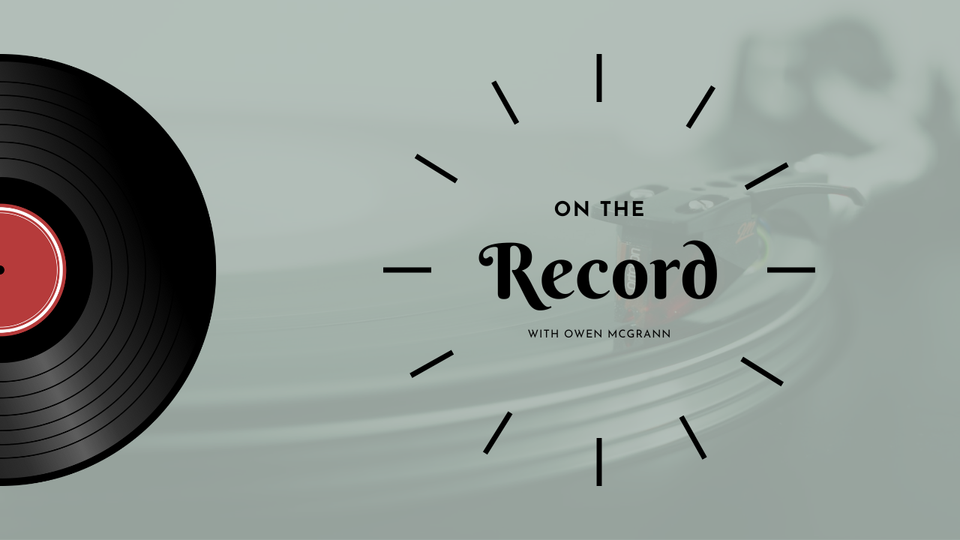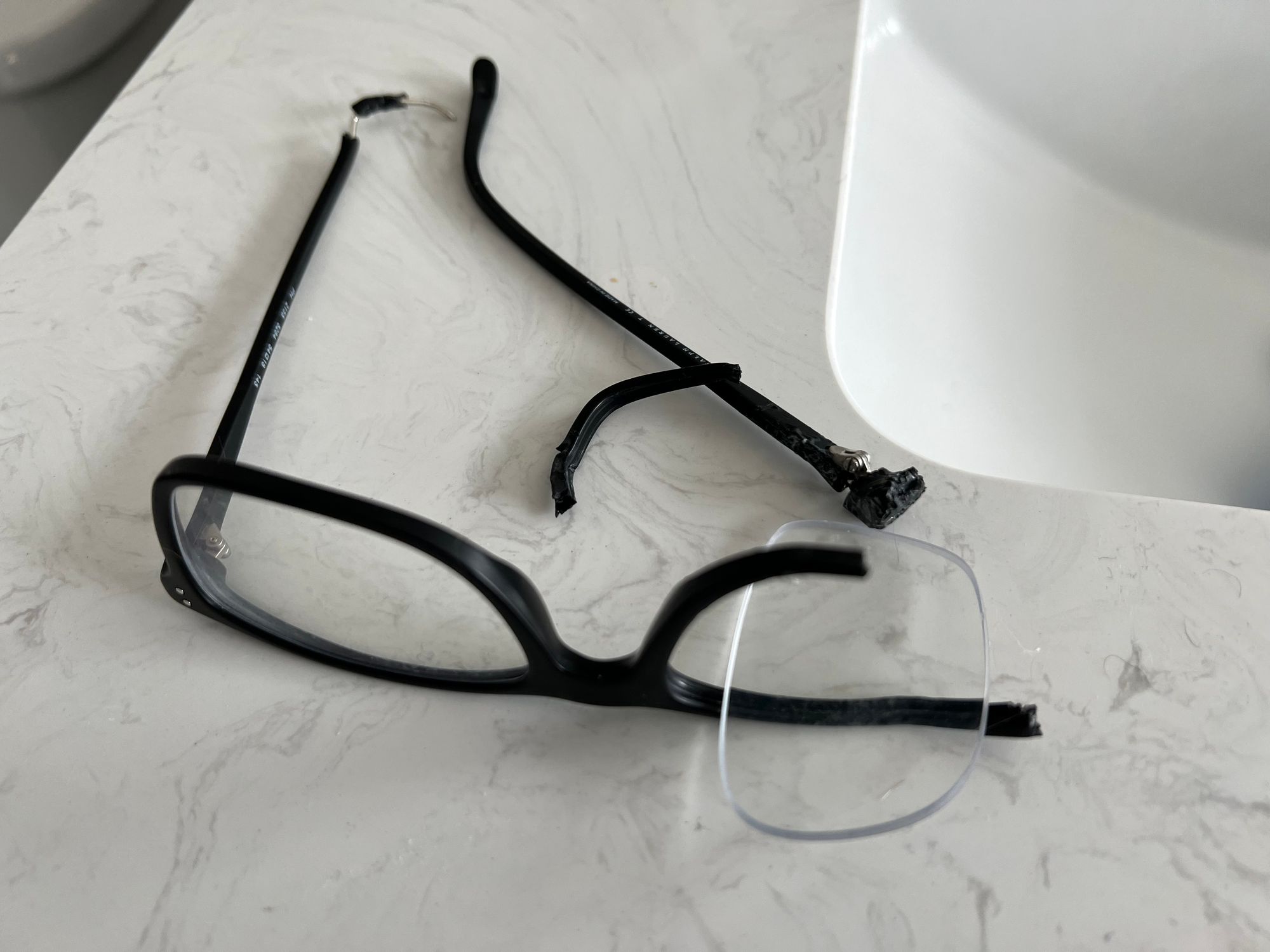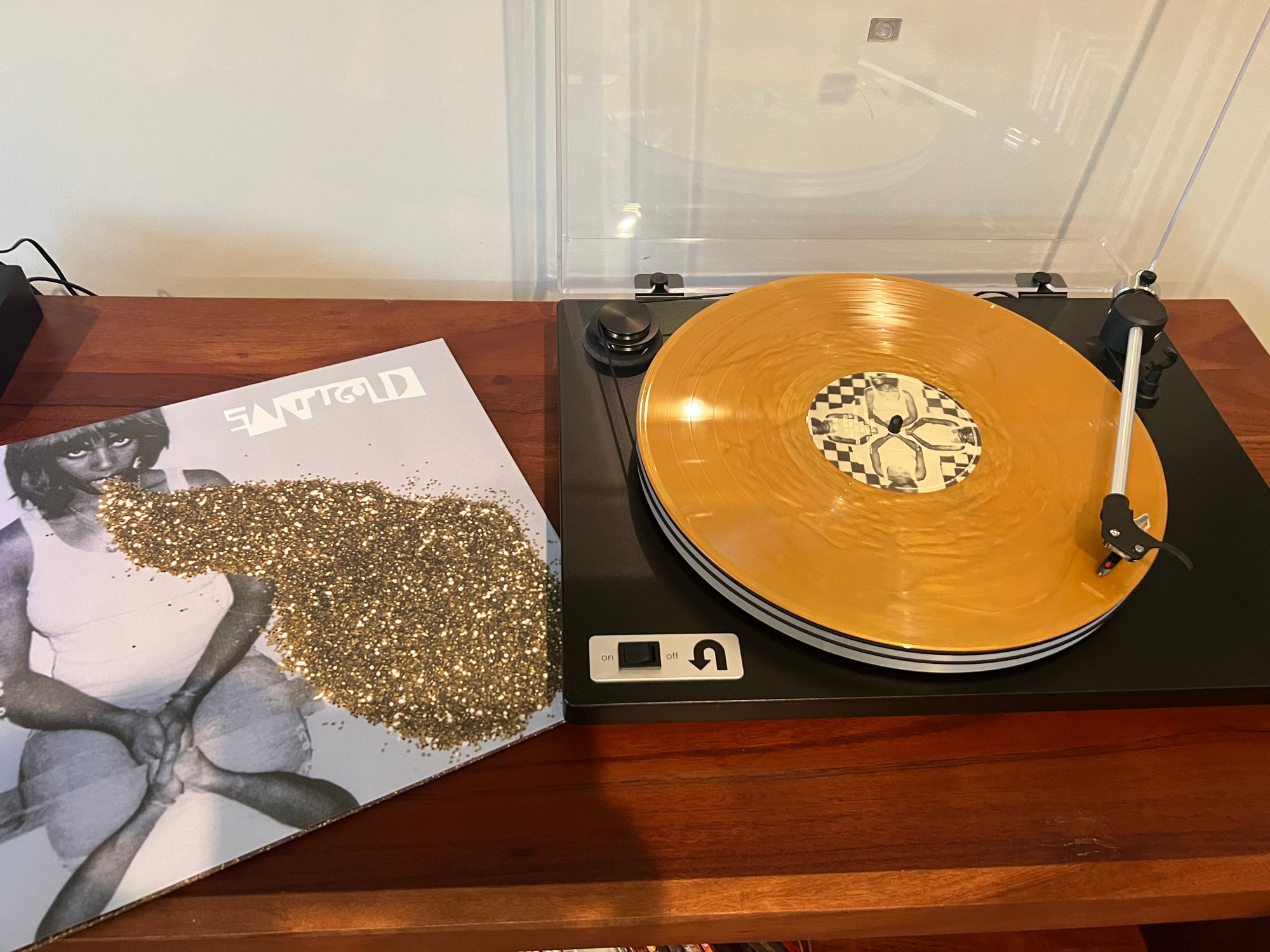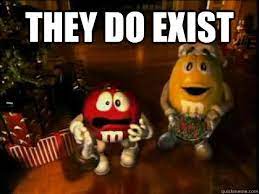OTR, Take 37: Santigold - Santigold

Here are your Tidal and Spotify links to today's record. (A quick note: if you subscribe to Spotify, please consider switching to Tidal. It has higher audio quality and, more importantly, pays musicians more per play.)
Good morning, fellow featherless bipeds! Just as I was settling back into the normal rhythm of life post-conference, my lovely, sweet, monster of a dog decided to destroy my only pair of glasses while I was showering yesterday.

"Not Clare!" you say, "She seems so sweet! Look at her face! Look at her face!"

Sure, she's cute – when it benefits her (which is almost always). But as any dog owner knows, the dog you see in photos is about as real as an influencer's Insta feed. Clare has been spoiled rotten by the fact that both Audra and I work from home. She almost never has crate time and I'm generally able to give her two or three good, long walks every day. She's grown very, very attached. Winnie was more independent, but then when I got her as a puppy, I was still working in Biglaw. Winnie had a lot of crate time.
Anyway, Clare did not like that I left for nearly a week and, aside from the chargeable assault she greeted me with upon my return home, she decided for the first time to go after critical infrastructure in my life. All of this to say, this OTR might be a little shorter than usual, because I can't see that well and I've had a headache for about 24 hours now. (I do pick up my new pair of glasses at noon, so not all is lost.)

Let's talk about things that don't fit neatly into a box. Or, in this case, things that spit in the face of being constrained by any sort of box in the first place.
Seth Godin talks about genre as a generous gift when creating: almost nobody is going to spend the time to figure out something that is truly unique. It takes a lot of work to comprehend something without reference to existing forms. The thing most people miss about this argument is that Seth is not saying that all creative work has to fit nicely in a genre; he's saying that creative work merely needs to reference a known genre enough to understand it. So when I hear people describing artists, writers, musicians, entrepreneurs, etc. as "genreless" it tells me two things: the person saying the words probably means that the person in question uses genre to his or her advantage in subverting it and I probably should not listen to this critic's opinions.
This is how I was first introduced to Santigold: "dude, you gotta check this out, this transcends genre and sounds like nothing else I've ever heard!"
Okay, bruh. Cool story.
Foolishly, it took me two or three years to actually listen to Santigold's self-titled debut. (Useless fact: the artist and album were originally named Santogold, but had to change their names due to an IP claim relating to some 80s movie, so within a few months of release, Santogold became Santigold.) And when I dropped the needle, I heard a song that fit pretty neatly into a genre – albeit not the genre I was expecting.
Just listen to those palm-muted notes and spare, almost Stewart Copeland style drums that open L.E.S. Artistes! The music is redolent of early punk and pop of the 80s, it has a melodic flair that offers earworm after earworm. It's familiar and yet unlike anything I'd heard before. This is what Seth means when he said genre is a generous gift: Santi drops enough sonic references for everything to be recognizable and yet gives us something surprising and new.
When I was in California for SaaStr, I was hit with my first in-person serious non-ironic, "It's like Uber, but for...." My friend, I must have stared at this guy with a slackjawed grin for an uncomfortably long time. It was like running into a meme in the wild.

After composing myself, I started asking about his company's product. Suffice it to say, the only similarity the product had to Uber was that both involved software. That's really about it. The reference point did nothing to help me understand what the fuck this product was for, and as a result, there could be no genre-busting, no surprise (pleasant or not) associated with its positioning.
When we talk about genre-busting we can mean several different things: an artist exists in a genre and then creates something that subverts his or her former work; an artist uses the tropes of an established genre to play with our expectations (we see this frequently in, say, postmodern literature); or [this is a non-exhaustive list, so "or" isn't quite right, but there you go] that an artist is so protean that he or she cannot be constrained to a genre.
Santigold falls into this final category. She's an incredibly gifted and subtle songwriter, who uses every note in her mezzo-soprano range to maximize punk, reggae, hip hop, riot grrrl, etc. arrangements. There are comfortable and familiar elements to everything Santi does – but where she goes from good musician to great artist is in the subversive elements she fits into her songs. Things that aren't obvious at first, but that make you pay attention to a song that otherwise could fade into the background. Things that you can't place at first and hit you weeks or months later.
To make the old new is an alchemy that is at the heart of all creative endeavor. To teach people to see, again.
I've been spending a ton of time reimagining my estates firm. My old partner and I decided to go our separate ways (no hard feelings, just different visions – Wendy is awesome and is launching The Pittsburgh Probate Law Firm and I hope she has All The Success) and I've been thinking a lot about what the genre of "estates firm" looks like. How to evoke familiarity while also offering something new and exciting without falling into "It's like Uber, but for..."
You see, I can't help but feel that the business model for estates firms (and law firms, more generally) is broken and I am torn between the perhaps foolish belief that I can change it and the desire to have Purely Estates turn more significant revenue. My wife, ever the practical one in the family, keeps asking me why I can't just follow the model. After all, it's working for some people!

And, if you were not already painfully aware, this is where I give away my arrogance: because I know I can do better. Would you ask Santigold to simply write more Souxie and the Banshees tracks rather than interpolate them into something new? What would it have looked like if Faulkner had decided to write traditional linear novels, as he surely could have? Every great painter first learned to paint in ways they ultimately built on and subverted.
"That's all well and good, but Faulkner was Faulkner and Santigold is supremely talented and you're...just a guy in Pittsburgh."
This is undoubtedly true. Luckily there are lots of hills in Pittsburgh to die on, and I guess this one's mine.
Member discussion